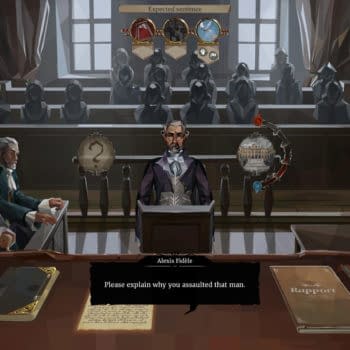Posted in: Games, Video Games | Tagged: EU, Steam, valve
European Commission Demands Valve Stop Geo-Blocking Games
The European Commission "EC" has sent Statements of Objections to Valve and five game publishers demanding that they stop geo-blocking games. The statement of Objections sent to Valve is based on an investigation started by the EC back in 2013. The EC is alleging that the publishers and their distributors entered into agreements to include geo-blocking provisions in PC games sold by the distributors, and that Valve entered into agreements with those same publishers that prevented consumers in the European Economic Area "EEA" from purchasing PC games on Steam due to their location.
Valve provided the following statement to the press:
Earlier today, the European Commission ("EC") sent Statements of Objections ("SO") to Valve and five publishers in an investigation that it started in 2013. The EC alleges that the five publishers entered into agreements with their distributors that included geo-blocking provisions for PC games sold by the distributors, and that separately Valve entered into agreements with the same publishers that prevented consumers in the European Economic Area ("EEA") from purchasing PC games because of their location.
However, the EC's charges do not relate to the sale of PC games on Steam – Valve's PC gaming service. Instead the EC alleges that Valve enabled geo-blocking by providing Steam activation keys and – upon the publishers' request – locking those keys to particular territories ("region locks") within the EEA. Such keys allow a customer to activate and play a game on Steam when the user has purchased it from a third-party reseller. Valve provides Steam activation keys free of charge and does not receive any share of the purchase price when a game is sold by third-party resellers (such as a retailer or other online store).
The region locks only applied to a small number of game titles. Approximately just 3% of all games using Steam (and none of Valve's own games) at the time were subject to the contested region locks in the EEA. Valve believes that the EC's extension of liability to a platform provider in these circumstances is not supported by applicable law. Nonetheless, because of the EC's concerns, Valve actually turned off region locks within the EEA starting in 2015, unless those region locks were necessary for local legal requirements (such as German content laws) or geographic limits on where the Steam partner is licensed to distribute a game. The elimination of region locks will also mean that publishers will likely raise prices in less affluent regions to avoid price arbitrage. There are no costs involved in sending activation keys from one country to another and the activation key is all a user needs to activate and play a PC game.
Valve's argument that the region locks applied only to a small number of game titles and that, therefore, the EC cannot hold Valve liable seems a bit thin. However, that will have to be determined by the EU court system.





![[REVIEW] "Gang Beasts" is Zany Party Madness](https://mlpnk72yciwc.i.optimole.com/cqhiHLc.IIZS~2ef73/w:350/h:350/q:75/rt:fill/g:ce/https://bleedingcool.com/wp-content/uploads/2019/09/gang-beasts-7-350x350.jpg)




![[REVIEW] "Divinity: Original Sin II" Definitive Edition is Almost Perfect](https://mlpnk72yciwc.i.optimole.com/cqhiHLc.IIZS~2ef73/w:350/h:350/q:75/rt:fill/g:ce/https://bleedingcool.com/wp-content/uploads/2018/08/Divinity-Original-Sin-2-Definitive-Edition-art-350x350.jpg)





